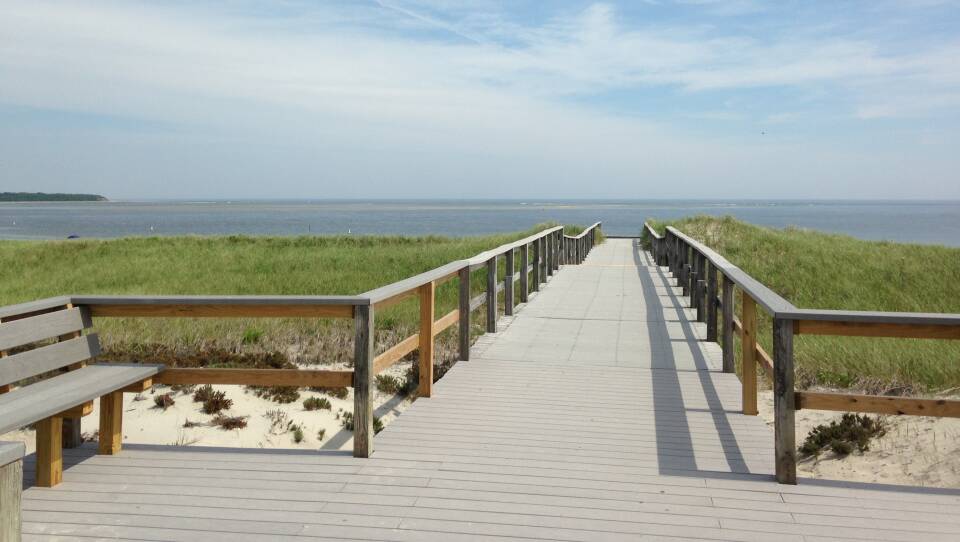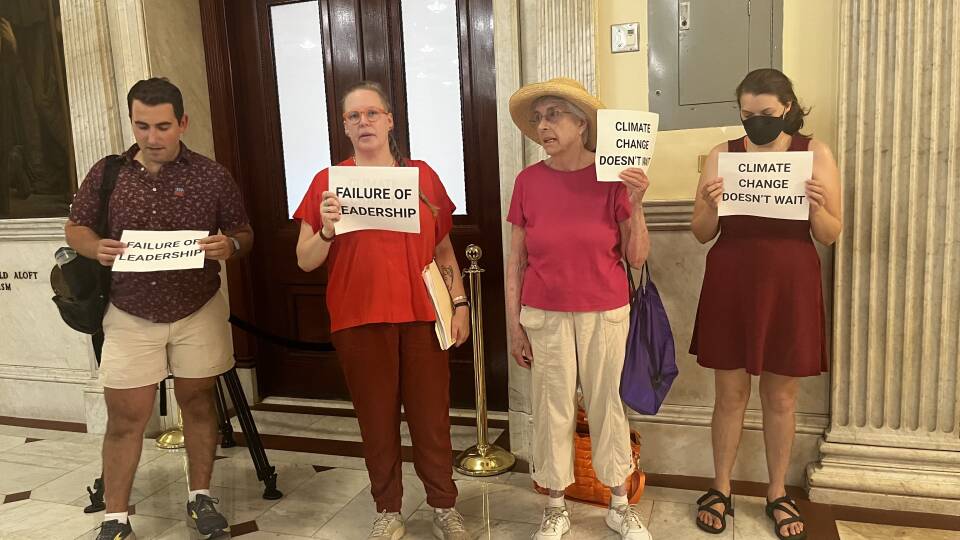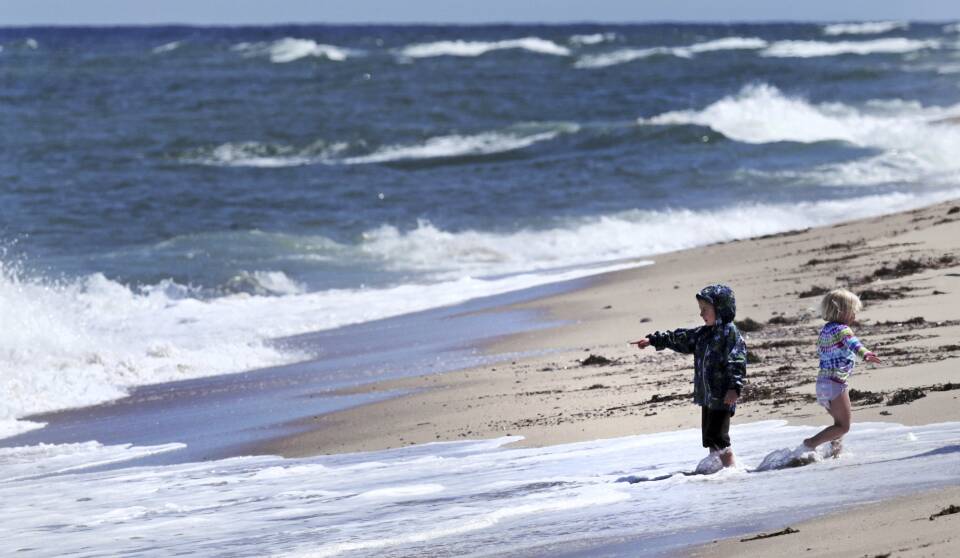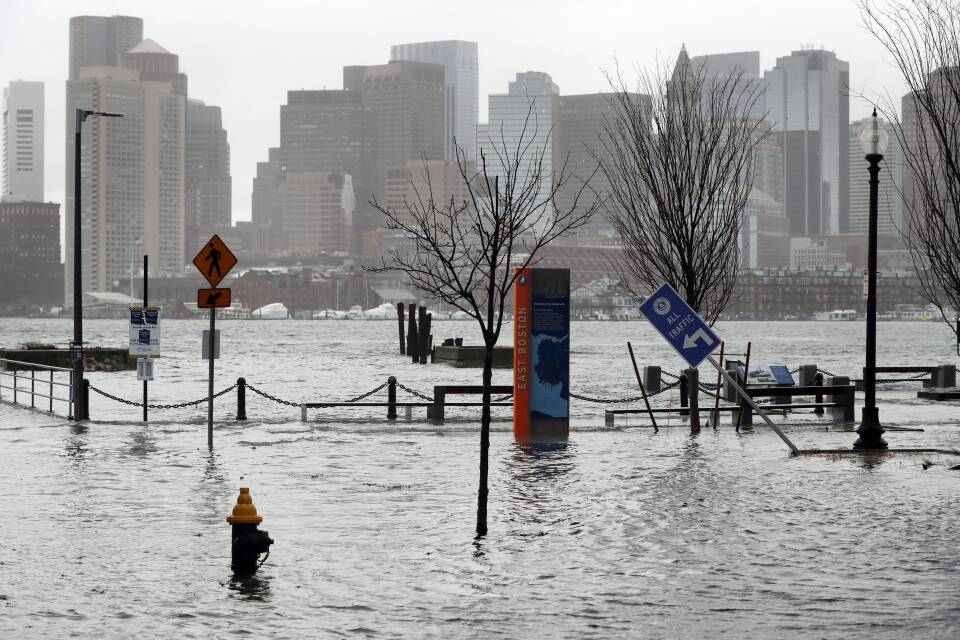Seven years ago, the Trustees of Reservations dreamed of a park on East Boston’s waterfront. It would be an oasis of green space in the cement-covered neighborhood, giving residents access to the waterfront and protecting them from flooding.
But that vision dissolved last month after the Trustees found the park would be underwater by 2050 as a result of sea level rise caused by climate change.
“The climate resiliency benefits for the city of East Boston itself were negligible. It wasn’t going to do anything to prevent the water coming into the city, which was the original plan,” Trustees CEO Katie Theoharides told Boston Public Radio on Tuesday.
The land trust had planned to spend tens of millions of dollars on the park, Theoharides said. Now, the Trustees are looking at other places in East Boston where they can provide access to green space while also protecting them from flooding and sea level rise.
It’s just one example of how sea level rise poses a challenge for the Trustees, the largest coastal landowner in the state behind the state and federal government.
“We have over 120 miles of coastal beaches and wetlands and dunes. And we see the erosion every year,” Theoharides said.
Last winter, a strong storm overtopped the beach dunes at Long Point Wildlife Refuge. The storm left behind dead sea creatures, and when coupled with hot summer temperatures, produced high bacteria counts and made a kettle pond unswimmable, Theoharides said.
On nearby Cape Pogue, the Trustees proposed closing 1,300 feet of trails that are too frequently inundated by the bay, the Vineyard Gazette reported.
Despite the challenges, the Trustees want to work on solutions to make coastlines more resilient, Theoharides said.
On Nantucket and Martha’s Vineyard, they are assessing areas vulnerable to sea level rise and storm surge to determine what solutions might work, from building up sand dunes to restoring oyster reefs. At Crane Beach in Ipswich, the Trustees are restoring the hydrology of Great Marsh.
“So it can build back sediment to keep pace with rising sea levels,” Theoharides said.








